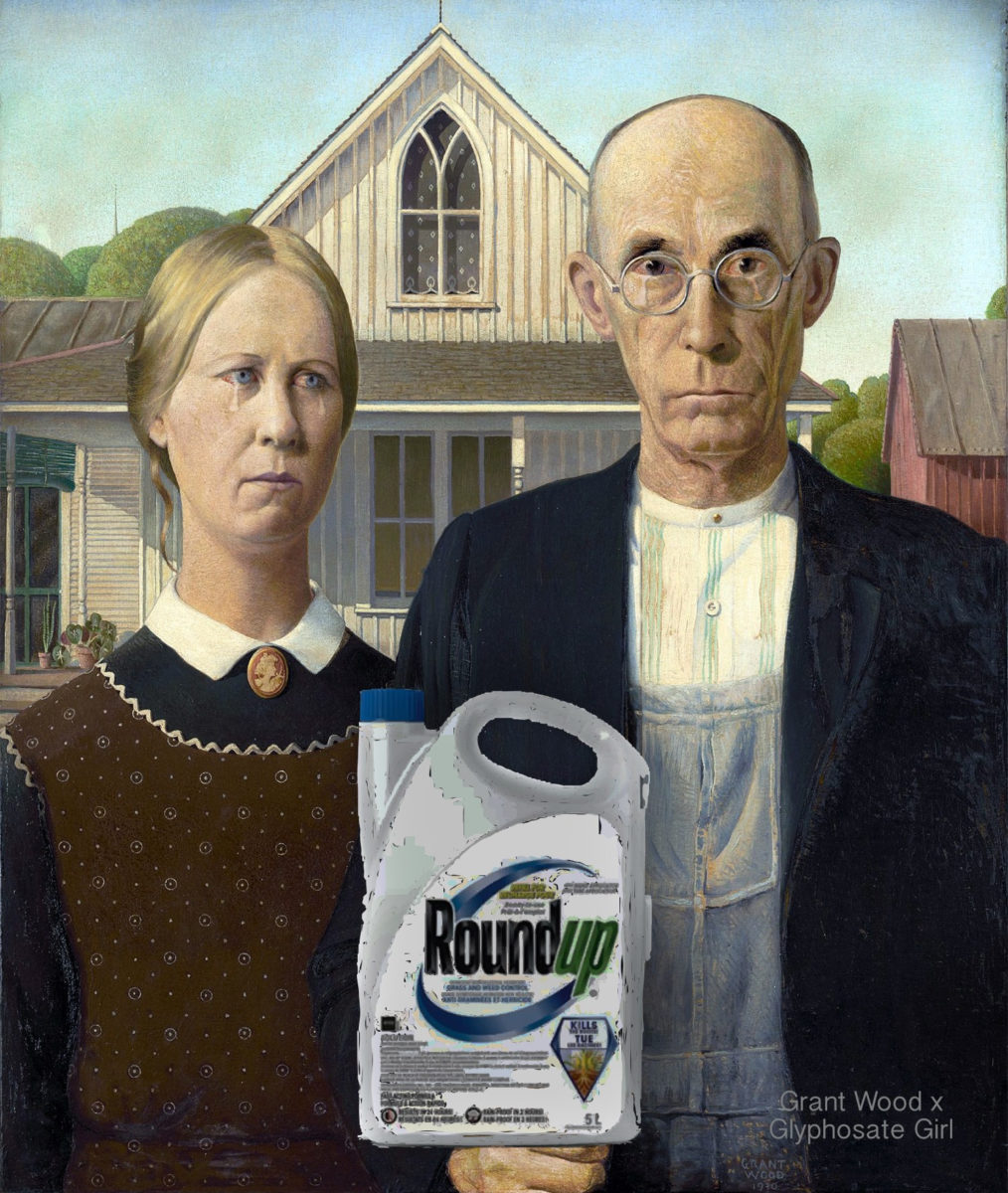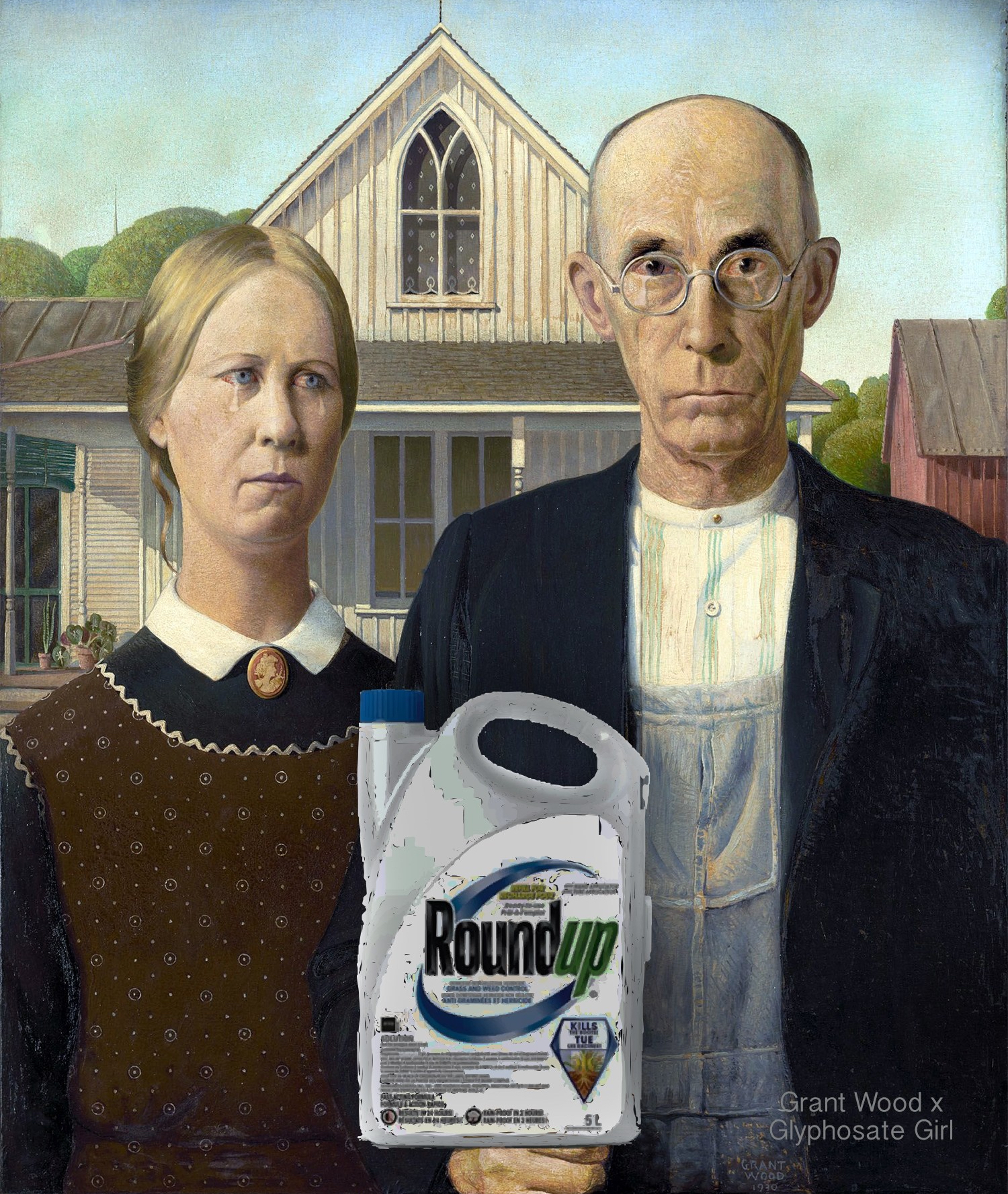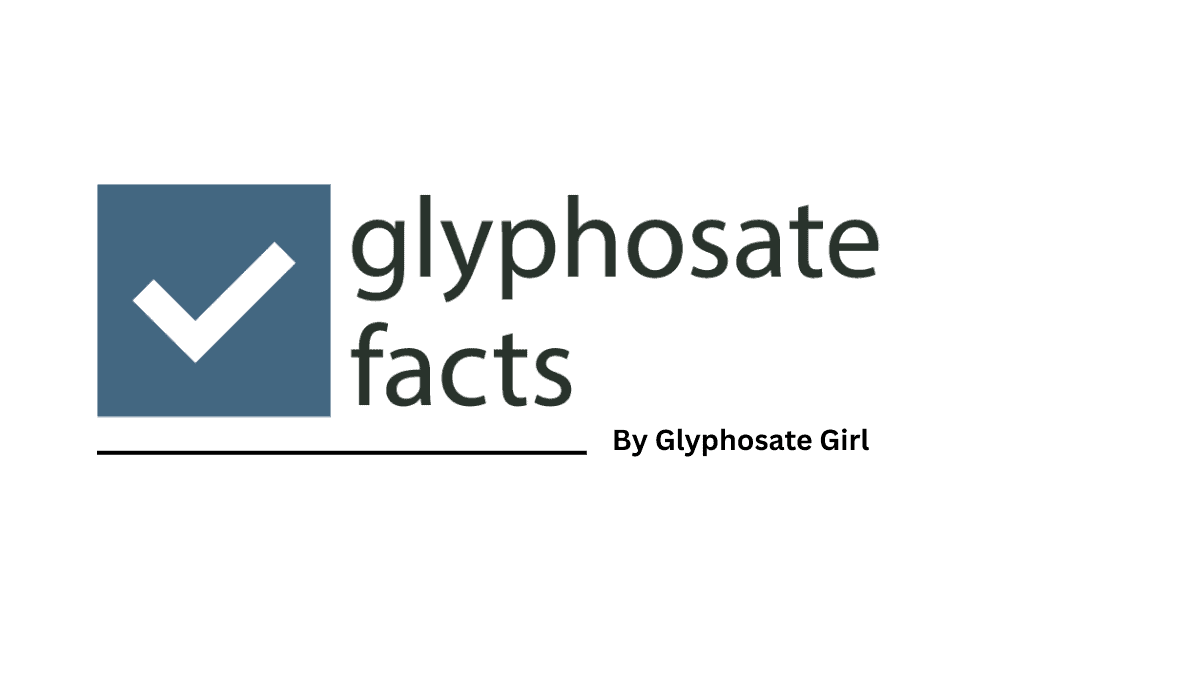American Groan

I’m back! After the intensity of the trial and the excitement of the verdict, I went sightseeing to clear my brain and find new inspiration. While in Chicago, I had the chance to visit the painting masterpiece American Gothic, by modernist artist Grant Wood, at the Art Institute of Chicago. The work felt strangely symbolic given the verdict a few days prior. So much for clearing my brain – the Monsanto glyphosate issue has taken up permanent residence.
As I read innumerable articles and reports discussing the epic Monsanto verdict, I have a hunch that the use of glyphosate may cease more quickly than I ever expected. We must keep momentum running so that this issue stays in the minds of consumers.
Last February, I attended the Columbia Celiac Center International Symposium. I find conferences that serve to train clinicians and explore the latest research from the medical academic community to be an excellent scope into the latest thinking in medicine and, ultimately, public health. I have severe gluten intolerance, and forcibly live the boring life of your annoying friend who eats a fresh fruit plate while you savor a double-decker Belgian waffle. At this symposium, Columbia served entirely gluten-free meals, so I could be indulgently and equally gluttonous.
Among a boatload of excellent presenters on that wintry weekend was a specialist in NCGS (non-celiac gluten sensitivity). I excitedly took a front row seat next to an elderly scientist from Sweden, who seemed comfortable manspreading well beyond his chair.
At the front of the room, the NCGS specialist walked through some recent studies that documented elevated blood antibodies to gluten in those who report gluten sensitivity. In other words, the reaction to gluten is a physiological, immunological response, not psychological or trendy. The study further showed that when gluten is isolated and purified, those blood markers do not increase in the NCGS patient. He showed a picture of a wheat grain, and vaguely hypothesized that there must be something on the outside of the grain causing this immune reaction in patients. He concluded that maybe one day scientists will figure out what that instigator may be.
I went up to the microphone for questions after the presentation, and gently asked whether he had considered Roundup as the source of problem on the outside of the grain. Several members of the audience turned around and one asked: “There is ROUNDUP on our food?” Glyphosate seems to be nowhere on the average gastroenterologist’s radar as a potential problem.
If these intestinal specialists do not yet know about the practice of spraying grains with glyphosate just prior to harvest, they hopefully will soon. Am I crazy to hypothesize that Roundup creates NCGS and autoimmune conditions? It just seems so overwhelmingly logical and sensible, given the timeline of the growth of Roundup use and the rising incidence of new health conditions like NCGS.
Another panel included two scientists from General Mills and one larger-than-life, huge cowboy-hatted farmer from a gluten-free oat farm. The hat was wonderfully out of place in the otherwise entirely New York scene. After the presentation, I again inquired about the use of glyphosate, this time on oats. One senior member of the GM science team told me that buyers of the grains have responsibility to put pressure on farmers in order to get the best product to customers. He also said that it would take at least a decade or two for farmers to adjust their farming techniques to work without the use of glyphosate.
I hope that is a gross overestimate. If that is indeed the case, we’ll all be closer to the grave by then, so it would be nice to see results sooner.
I feel terrible for the farmers. They have not only exposed themselves and their employees to the toxic health effects of Roundup, but also adapted their cultivation and harvesting techniques to be dependent upon its use. Like many of us, they drank the Kool-Aid that Roundup is healthy because Monsanto and the EPA said so. Now, that use has left them financially, biologically and ethically screwed.
I wonder if Bayer will ultimately be responsible for paying damages to these well-intentioned farmers as well, particularly as it becomes more widely accepted that Monsanto knew Roundup and glyphosate to be harmful. Farmers are among the thousands who have filed lawsuits against Monsanto over their cancer and other health claims. If glyphosate use is ultimately banned, these farmers will need to make significant capital expenditures to revamp their farming practices. Making a shift to organic farming is time consuming, risky and challenging. Agritech innovations are promising, but not cheap.
There is no clear answer to this weighty predicament. While I celebrate the verdict, I know that the news was far from fabulous for those farmers whose livelihood depends upon the use of glyphosate.
American Groan.

© 2018 Kelly Ryerson ALL RIGHTS RESERVED

